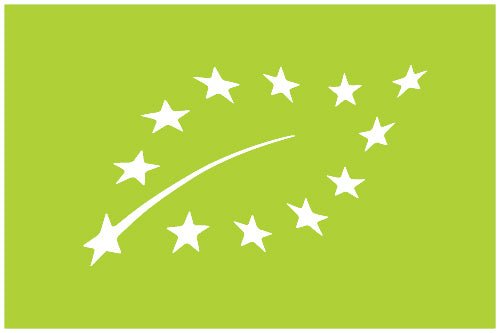If you're interested in health and nutrition, you’ve probably come across the term "bioflavonoids" quite often. These secondary plant compounds are gaining increasing popularity – both in society and in science. And it’s not without reason: bioflavonoids are known for their many positive properties that can support our health. In this article, we will introduce you to the valuable properties of bioflavonoids and explain how they can be beneficial to our health.
Inhaltsverzeichnis
What Are Bioflavonoids?
Bioflavonoids are secondary plant compounds found in many fruits, vegetables, legumes, as well as herbs, cocoa, and tea. Green tea, in particular, is rich in flavonoids. These secondary plant compounds are highly useful in nature, serving plants as natural insecticides, making them unappetizing to insects, fungi, and other pests. Additionally, they provide UV protection to plants, shielding them from harmful radiation. Another advantage is that these compounds can attract bees, butterflies, and other pollinators with their scent.
Bioflavonoids can be classified into six main groups:
- Flavans
- Flavones
- Flavonols
- Isoflavones
- Anthocyanins
These groups may have additional subgroups. In naturopathy, bioflavonoids are considered a true health booster. They are known for their antioxidant, anti-inflammatory, and neuroprotective properties, and they can support the immune system, cardiovascular system, vein and skin health, brain function, and metabolism.
Dr. Nicola Bondonno, lead researcher at the School of Medical and Health Sciences at ECU, explained: “Flavonoids have anti-inflammatory properties and improve blood vessel function, which could explain why they are linked to a reduced risk of death from heart disease and cancer.” She also added that it's important to consume a wide variety of flavonoid compounds found in many plant-based foods and beverages. “This can easily be achieved through diet: A cup of tea, an apple, an orange, 100 g of blueberries, and 100 g of broccoli would provide a broad range of flavonoid compounds and over 500 mg of total flavonoids.” 1
Bioflavonoids and Their Sources
Many of the foods we eat daily contain bioflavonoids, often without us even realizing it. You can find these valuable compounds in the following foods:
- Berries (blueberries, raspberries, strawberries)
- Citrus fruits (oranges, lemons, grapefruits)
- Apples
- Grapes
- Onions
- Spinach
- Peppers
- Broccoli
- Kale
- Cocoa
- Green and black tea
- Beans
- Lentils
- Herbs
- Spices
Supplementation with bioflavonoids in the form of capsules or powder is becoming increasingly popular. These supplements are usually carefully controlled and have high bioavailability. The advantage of supplementation is that the dosage can be specifically adjusted to meet your daily intake. For people with busy lifestyles who may not always have time to focus on a balanced diet, bioflavonoid supplements provide an optimal solution. Since bioflavonoids are found in many colorful fruits and vegetables, smoothies and bowls are a great way to increase your intake of these important nutrients. The cosmetics industry also recognizes the antioxidant, anti-inflammatory, and skin-care properties of bioflavonoids, which is why they are often added to creams, serums, lotions, and more.
Citrus Bioflavonoids and Their Benefits
As the name suggests, citrus bioflavonoids are a subgroup of flavonoids found primarily in citrus fruits such as oranges, lemons, grapefruits, and mandarins. The majority of these bioflavonoids are found in the peel and rind of citrus fruits. Citrus bioflavonoids are responsible for the characteristic tart taste and smell of these fruits. Some of the best-known citrus bioflavonoids include hesperidin and diosmin. Both of these bioflavonoids are often combined in dietary supplements and are known for their effects on circulation and antioxidant properties. Diosmin, in particular, is often recommended to promote vein health and is commonly used to treat varicose veins, spider veins, and swollen legs.

Natural Synergy Between Bioflavonoids and Vitamin C
Bioflavonoids and Vitamin C are commonly found together in many fruits and vegetables, especially citrus fruits. This combination is a natural synergy because bioflavonoids are known to enhance the absorption and effectiveness of Vitamin C. Together, they are considered particularly helpful as they support each other’s antioxidant and health-promoting functions.
Intake and Side Effects of Citrus Bioflavonoids
In general, the intake of citrus bioflavonoids is well-tolerated and free from side effects. However, if there is an allergy to citrus fruits, a history of kidney disease, or if blood-thinning medications are being taken, it is essential to consult a doctor before using them. Pregnant and breastfeeding women are advised to take citrus bioflavonoids only under the supervision and guidance of a doctor.
Positive Properties of Citrus Bioflavonoids for Humans
Citrus bioflavonoids are gaining more attention in scientific research. Numerous studies have focused on the potential health benefits of citrus bioflavonoids and have aimed to substantiate these claims. Below are some key study results:
Citrus Bioflavonoids and the Immune System
Hesperidin, hesperetin, naringenin, naringin, and narirutin are flavonoids found in citrus fruits, all of which have anti-inflammatory properties. Several studies report that hesperidin can reduce inflammation markers. It is believed that consuming orange juice after a meal rich in fats and carbohydrates can help reduce the inflammatory response triggered by such meals. A meta-analysis even confirmed that daily consumption of orange juice can significantly reduce inflammation markers in the body. 2 These scientific findings suggest that citrus bioflavonoids may indeed help combat oxidative stress and inflammation in the body.
Citrus Bioflavonoids and Vein Health
A 2021 study investigated the effectiveness of diosmin in patients with chronic venous disease, aiming to relieve symptoms and improve quality of life. In the study, patients took either diosmin or a placebo daily. The results showed that the diosmin group had a noticeable reduction in leg edema after 4 weeks, and pain levels decreased after 8 weeks. No side effects were observed with this treatment. 3 This study demonstrates that diosmin treatment can support vein health.
Citrus Bioflavonoids and the Cardiovascular System
A study published in 2021 examined a supplement containing a blend of grapefruit, bitter orange, and olive extract. The objective was to determine whether this supplement could reduce the risk of cardiovascular diseases in healthy individuals. The participants were divided into two groups, one receiving the supplement and the other a placebo. The results showed that the supplement group experienced significant improvements in blood pressure, total cholesterol, and inflammation markers. This supplement was also well-tolerated without side effects. These findings suggest that the combination of grapefruit, bitter orange, and olive extract may have anti-inflammatory effects and positive impacts on the cardiovascular system. 4
Anzeige

Order the Citrus Bioflavonoids now
Citrus Bioflavonoids and Skin Health
To assess the impact of citrus bioflavonoids on skin health, a study was conducted where a citrus bioflavonoid blend was administered to patients with senile purpura, a condition that causes spontaneous bruising in older adults. The study aimed to improve the appearance of the skin. To evaluate the effectiveness, participants were divided into two groups: one received the citrus bioflavonoid blend, while the other received a placebo. The study found that six weeks of citrus bioflavonoid supplementation significantly reduced the number of new purpura lesions, with the treated group reporting 50% fewer lesions compared to baseline. Participants also noted visible improvements in their skin appearance. 5
Conclusion
Flavonoids are colorful, delicious, and known for their promising properties that support both our physical and mental well-being. We encourage you to consider incorporating flavonoids into your diet. A balanced and varied diet, in particular, can help us feel fit and healthy. Supplements can also be a great way to complement your diet, providing targeted nutrients to support your overall health.
Sources:
1. Science Daily. (2019, August 13). Flavonoid intake linked to lower mortality rates in Danish study. Science Daily. https://www.sciencedaily.com/releases/2019/08/190813080204.htm
2. Miles EA, Calder PC. Effects of Citrus Fruit Juices and Their Bioactive Components on Inflammation and Immunity: A Narrative Review. Front Immunol. 2021 Jun 24;12:712608. doi: 10.3389/fimmu.2021.712608. PMID: 34249019; PMCID: PMC8264544.
3. Sánchez Macarro M, Martínez Rodríguez JP, Bernal Morell E, Pérez-Piñero S, Victoria-Montesinos D, García-Muñoz AM, Cánovas García F, Castillo Sánchez J, López-Román FJ. Effect of a Combination of Citrus Flavones and Flavanones and Olive Polyphenols for the Reduction of Cardiovascular Disease Risk: An Exploratory Randomized, Double-Blind, Placebo-Controlled Study in Healthy Subjects. Nutrients. 2020 May 19;12(5):1475. doi: 10.3390/nu12051475. PMID: 32438719; PMCID: PMC7284884.
4. Sánchez Macarro M, Martínez Rodríguez JP, Bernal Morell E, Pérez-Piñero S, Victoria-Montesinos D, García-Muñoz AM, Cánovas García F, Castillo Sánchez J, López-Román FJ. Effect of a Combination of Citrus Flavones and Flavanones and Olive Polyphenols for the Reduction of Cardiovascular Disease Risk: An Exploratory Randomized, Double-Blind, Placebo-Controlled Study in Healthy Subjects. Nutrients. 2020 May 19;12(5):1475. doi: 10.3390/nu12051475. PMID: 32438719; PMCID: PMC7284884.
5. Berlin JM, Eisenberg DP, Berlin MB, Sarro RA, Leeman DR, Fein H. A randomized, placebo-controlled, double-blind study to evaluate the efficacy of a citrus bioflavanoid blend in the treatment of senile purpura. J Drugs Dermatol. 2011 Jul;10(7):718-22. PMID: 21720653.




 DE-ÖKO-006
DE-ÖKO-006
